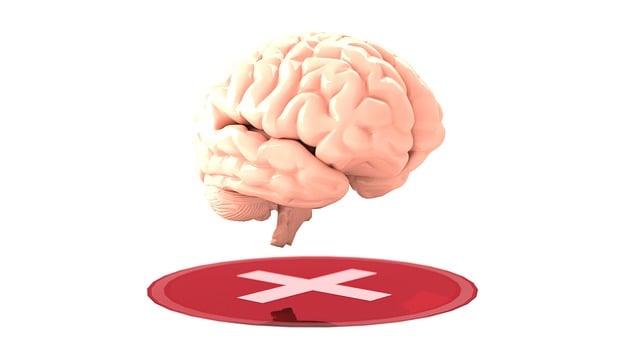Lone Tree Grief Counseling Therapy offers a holistic approach to emotional well-being, integrating mindfulness, empathy, and crisis intervention to help individuals manage moods, grief, and stress. By cultivating self-awareness, developing healthy coping mechanisms, and reducing anxiety through conflict resolution, clients reclaim emotional balance and enhance meaningful connections. This tailored therapy focuses on the mind-body connection, empowering resilience against short-term distress and fostering long-term emotional stability. Incorporate practices like Mental Wellness Journaling and regular exercise for additional mood enhancement, leading to improved mental wellness and overcoming life's challenges proactively.
Mood regulation is a vital aspect of emotional well-being, and mastering it can significantly impact our daily lives. This article explores various strategies to achieve and maintain a balanced mood, focusing on the role of Lone Tree Grief Counseling Therapy as a powerful tool for managing emotions. From understanding the foundations of mood regulation to practical daily techniques, we delve into methods that foster emotional resilience. Additionally, we provide insights into overcoming challenges to ensure long-term positive moods.
- Understanding Mood Regulation: Unraveling Emotional Balance
- The Role of Lone Tree Grief Counseling Therapy in Managing Moods
- Practical Strategies for Daily Mood Enhancement
- Overcoming Challenges: Tips for Sustaining Positive Moods Long-term
Understanding Mood Regulation: Unraveling Emotional Balance

Understanding Mood Regulation is a journey into the intricate balance of emotions that shape our daily experiences. Our emotional well-being plays a pivotal role in overall health, influencing how we perceive and interact with the world around us. In the context of Lone Tree Grief Counseling Therapy, professionals guide individuals through the complexities of grief and mood fluctuations, offering valuable tools for achieving emotional equilibrium. This process involves exploring underlying triggers, developing healthy coping mechanisms, and cultivating strategies to navigate life’s challenges more effectively.
By integrating conflict resolution techniques and social skills training, individuals can enhance their ability to manage stress, reduce anxiety relief, and foster meaningful connections. These practices empower people to recognize and express their emotions constructively, transforming the way they respond to both everyday stressors and significant life events. Through a holistic approach, Lone Tree Grief Counseling Therapy empowers clients to reclaim emotional balance and lead more fulfilling lives.
The Role of Lone Tree Grief Counseling Therapy in Managing Moods

Lone Tree Grief Counseling Therapy offers a powerful tool for managing moods and navigating emotional crises. This therapeutic approach goes beyond traditional counseling by incorporating mindfulness techniques, empathy building strategies, and crisis intervention guidance tailored to individual needs. Through this process, individuals learn to identify and regulate their emotional responses, fostering a deeper understanding of themselves.
The therapy focuses on the interconnectedness of mind and body, aligning with the core principles of Mind Over Matter. By cultivating awareness and adopting constructive coping mechanisms, clients gain the resilience needed to confront life’s challenges head-on. This holistic approach not only assists in managing acute distress but also equips individuals with long-term strategies for maintaining emotional balance, ensuring they can thrive even amidst the most formidable circumstances.
Practical Strategies for Daily Mood Enhancement

Enhancing your daily mood is an accessible goal when equipped with practical strategies. One powerful tool in this endeavor is Lone Tree Grief Counseling Therapy, which offers specialized guidance for navigating emotional challenges. Incorporating simple practices into your routine can significantly impact mental wellness. For instance, Mental Wellness Journaling allows you to introspect and track your emotions, providing clarity and helping to identify patterns that may be affecting your mood.
Regular exercise is another evidence-backed strategy for boosting mental health awareness and mood regulation. Even a brief walk in nature can stimulate positive feelings by reducing stress hormones and increasing the production of endorphins, often referred to as ‘feel-good’ chemicals. These simple yet effective techniques demonstrate that small changes can lead to substantial improvements in one’s overall mental wellness.
Overcoming Challenges: Tips for Sustaining Positive Moods Long-term

Overcoming challenges is a significant aspect of sustaining positive moods long-term. It’s essential to acknowledge that life often presents obstacles—from stressful work environments to personal relationships and even traumatic events. These experiences can significantly impact our emotional well-being. However, with the right tools and support, it becomes possible to navigate these hurdles and maintain a balanced mental state.
Lone Tree Grief Counseling Therapy offers valuable resources for those seeking to enhance their mood management skills. Through tailored therapy sessions, individuals can learn coping mechanisms to deal with stress and grief effectively. Mental illness stigma reduction efforts play a crucial role in encouraging people to seek help without fear of judgment. Additionally, trauma support services are vital for processing past traumas, which often underlie persistent low moods and emotional struggles. By addressing these challenges proactively, one can foster resilience and maintain long-term emotional equilibrium.
Mood regulation is a multifaceted journey, and as demonstrated, both professional support from Lone Tree Grief Counseling Therapy and personal strategies can significantly enhance emotional balance. By integrating practical tools into daily routines and overcoming challenges with long-term mindset adjustments, individuals can achieve sustained positive moods. Remember that understanding and managing one’s emotions is an ongoing process, and seeking help when needed is a sign of strength.














